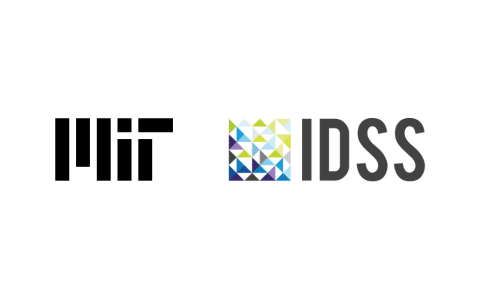Online NLP Free Course with Certificate
Introduction to Natural Language Processing
Enhance your AI expertise by enrolling in the free NLP Course, covering essential topics such as Data Pre-processing, NLP Modeling Techniques. Acquire in-demand skills through this comprehensive natural language processing course.

Ratings
Level
Learning hours

Learners
Skills you’ll Learn
About this course
This free NLP course starts by introducing you to NLP and Python. You will learn about data pre-processing and learn to work with different types of documents using Python. You will understand tokenization, its needs, and its implementation through this NLP course. You will go through a hands-on session online and word tokenization implementation using Python programming. Understand stemming, lemmatization, and stopwords better with the hands-on sessions on their implementation using Python.
You will learn about the bag of words and TF-IDF models and comprehend word embedding. In this free Introduction to NLP course, you will then learn about Machine Learning, logistic regression, and sentiment analysis. You will go through a thorough demo on sentiment analysis and learn about TextBlob. Learn TextBlob, and its functionalities and go through TextBlob sentiment analysis. Lastly, you will go through U-Net, semantic segmentation, and their demo. Enroll in this free Introduction to Natural Language Processing course and complete the quiz at the end to earn a certificate of course completion.
Check out Great Learning’s Best Artificial Intelligence Courses and dwell more into emerging technologies in the industry. Enroll in the course you are interested in and achieve a certificate of course completion.
Course Outline
In this module, you will get introduced to NLP and its various popular examples. You will go through the roadmap to learn NLP and understand the implementation of the technique through Python.
In this module, you will learn Python and comprehend why its chosen for the implementation of NLP. You will learn about the Python programming language’s benefits and its important libraries.
This module helps you comprehend what data is and how to work with different types of documents using Python programming language. You will then understand data pre-processing through the Python hands-on session and understand the types of data pre-processing.
In this module of the NLP course, you will learn tokenization and understand why you need tokenization. You will then go through a demo on implementing tokenization using Python. You will implement line and word tokenization using Python programming language.
In this module, you will learn stemming and understand the need for stemming. You will also go through a hands-on session on implementing stemming using Python programming language.
What our learners enjoyed the most
Skill & tools
65% of learners found all the desired skills & tools
Ratings & Reviews of this Course
Frequently Asked Questions
What prerequisites are required to learn this Introduction to Natural Language Processing course?
There are no prerequisites required to get started with this free NLP course. It is a beginner’s course; hence novice learners can start NLP from scratch.
How long does it take to complete this free NLP course?
This free Introduction to Natural Language Processing course contains 4.5 hours of self-paced videos that learners can take up according to their convenience.
What are my next learning options after this Introduction to NLP course?
You can enroll in Great Learning’s Best PG Artificial Intelligence Course online by the University of Texas at Austin’s McCombs School of Business.
Will I get a certificate after completing this Introduction to Natural Langauge Processing course?
Yes, you will be rewarded with a free NLP course completion certificate after completing all the modules and the quiz at the end of this free Introduction to Natural Language Processing course.
How much does this NLP course cost?
This Introduction to NLP course is offered for free by Great Learning Academy.
Popular Upskilling Programs
Other Artificial Intelligence tutorials for you
Natural Language Processing
Natural Language Processing (NLP) is a branch of Artificial Intelligence (AI) that focuses on the interaction between computers and humans using natural language. NLP is concerned with the development of algorithms and computational models that enable computers to understand, interpret, and generate human language.
NLP plays a significant role in many industries, including healthcare, finance, education, customer service, and many more. The technology has become increasingly popular in recent years due to its ability to analyze and process large amounts of data quickly and accurately, leading to more efficient and effective decision-making.
One of the primary applications of NLP is in natural language understanding (NLU), which involves processing and interpreting human language. This includes tasks such as sentiment analysis, named entity recognition, and text classification. Sentiment analysis involves analyzing written or spoken language to determine the emotional tone of the message. Named entity recognition involves identifying and classifying named entities, such as people, places, and organizations, in text. Text classification involves categorizing text documents into predefined categories.
Another significant application of NLP is in natural language generation (NLG), which involves using computer algorithms to generate human-like language. This includes tasks such as automatic summarization, text simplification, and machine translation. Automatic summarization involves generating a summary of a text document, while text simplification involves rewriting text to make it easier to understand. Machine translation involves translating text from one language to another.
NLP technology relies on several subfields, including linguistics, computer science, and mathematics. Some of the core techniques used in NLP include statistical methods, machine learning, and deep learning. Statistical methods involve analyzing and modeling language using probability and statistics. Machine learning involves training algorithms to identify patterns in data and make predictions based on those patterns. Deep learning involves training deep neural networks to learn and understand the structure of language.
One of the challenges of NLP is that natural language is highly complex and can be ambiguous. This can make it difficult for computers to accurately interpret and generate human language. However, recent advancements in NLP technology have made significant progress in overcoming these challenges. For example, deep learning techniques have enabled computers to understand the context and meaning of words and phrases, leading to more accurate language processing.
NLP is being used in a wide range of applications today, from chatbots and virtual assistants to automated translation services and sentiment analysis tools. In healthcare, NLP is being used to analyze electronic health records to improve patient outcomes and reduce costs. In finance, NLP is being used to analyze financial data and provide more accurate predictions and insights. In education, NLP is being used to develop intelligent tutoring systems that can adapt to the individual needs of students.
In conclusion, Natural Language Processing is an exciting field of study that has the potential to revolutionize the way we interact with computers and machines. NLP technology is being used in a wide range of applications, from healthcare and finance to education and customer service. With continued advancements in technology and research, the potential applications of NLP are virtually limitless.
































